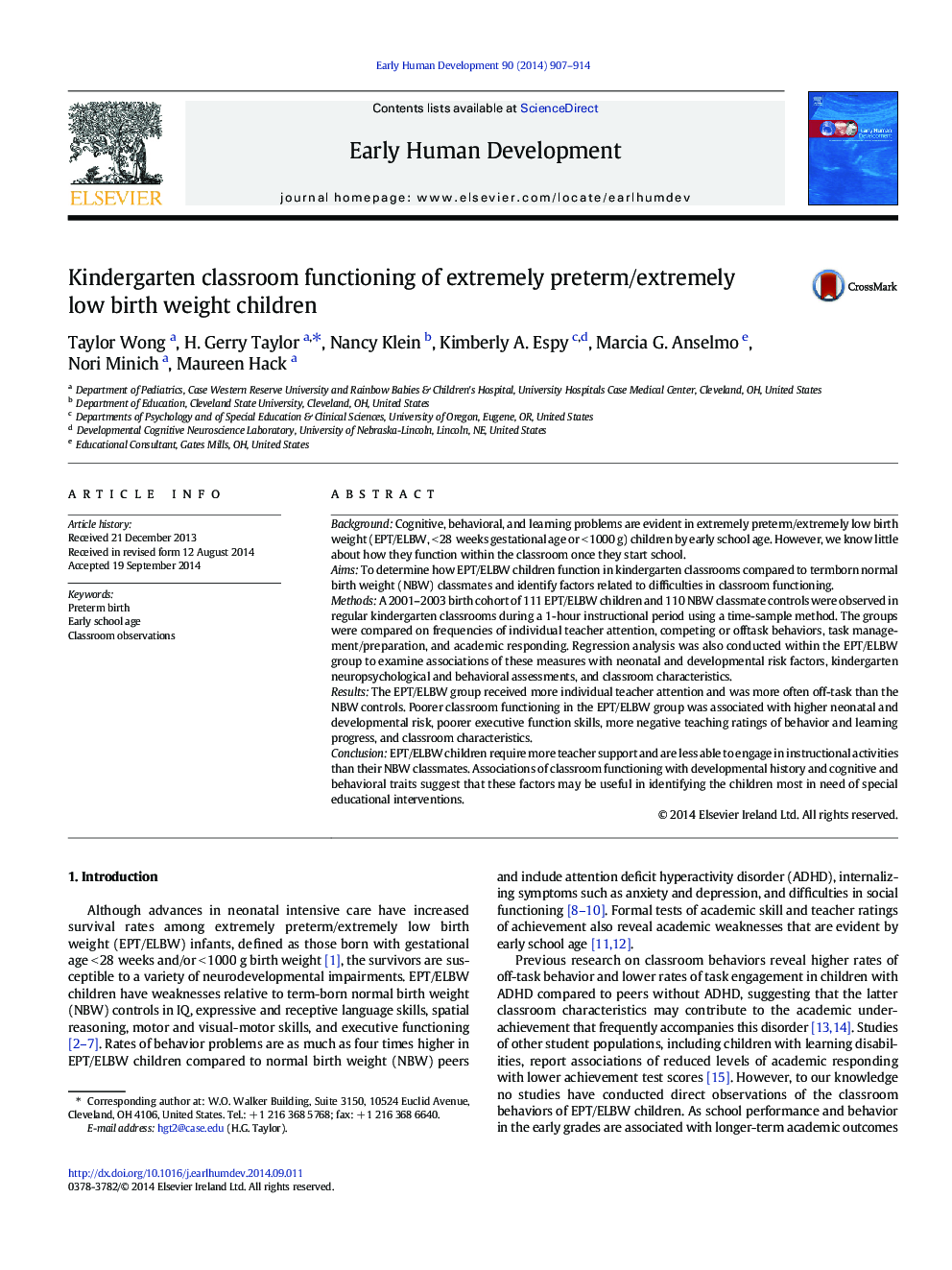| Article ID | Journal | Published Year | Pages | File Type |
|---|---|---|---|---|
| 6171833 | Early Human Development | 2014 | 8 Pages |
â¢The effects of extreme prematurity include problems in classroom functioning at school entry.â¢Observed differences compared to peers include more off-task behavior and teacher attention.â¢Poor classroom functioning is associated with problems in cognition, behavior, and learning.â¢Children with extreme prematurity require more instructional support than their peers.
BackgroundCognitive, behavioral, and learning problems are evident in extremely preterm/extremely low birth weight (EPT/ELBW, <Â 28Â weeks gestational age or <Â 1000Â g) children by early school age. However, we know little about how they function within the classroom once they start school.AimsTo determine how EPT/ELBW children function in kindergarten classrooms compared to termborn normal birth weight (NBW) classmates and identify factors related to difficulties in classroom functioning.MethodsA 2001-2003 birth cohort of 111 EPT/ELBW children and 110 NBW classmate controls were observed in regular kindergarten classrooms during a 1-hour instructional period using a time-sample method. The groups were compared on frequencies of individual teacher attention, competing or offtask behaviors, task management/preparation, and academic responding. Regression analysis was also conducted within the EPT/ELBW group to examine associations of these measures with neonatal and developmental risk factors, kindergarten neuropsychological and behavioral assessments, and classroom characteristics.ResultsThe EPT/ELBW group received more individual teacher attention and was more often off-task than the NBW controls. Poorer classroom functioning in the EPT/ELBW group was associated with higher neonatal and developmental risk, poorer executive function skills, more negative teaching ratings of behavior and learning progress, and classroom characteristics.ConclusionEPT/ELBW children require more teacher support and are less able to engage in instructional activities than their NBW classmates. Associations of classroom functioning with developmental history and cognitive and behavioral traits suggest that these factors may be useful in identifying the children most in need of special educational interventions.
